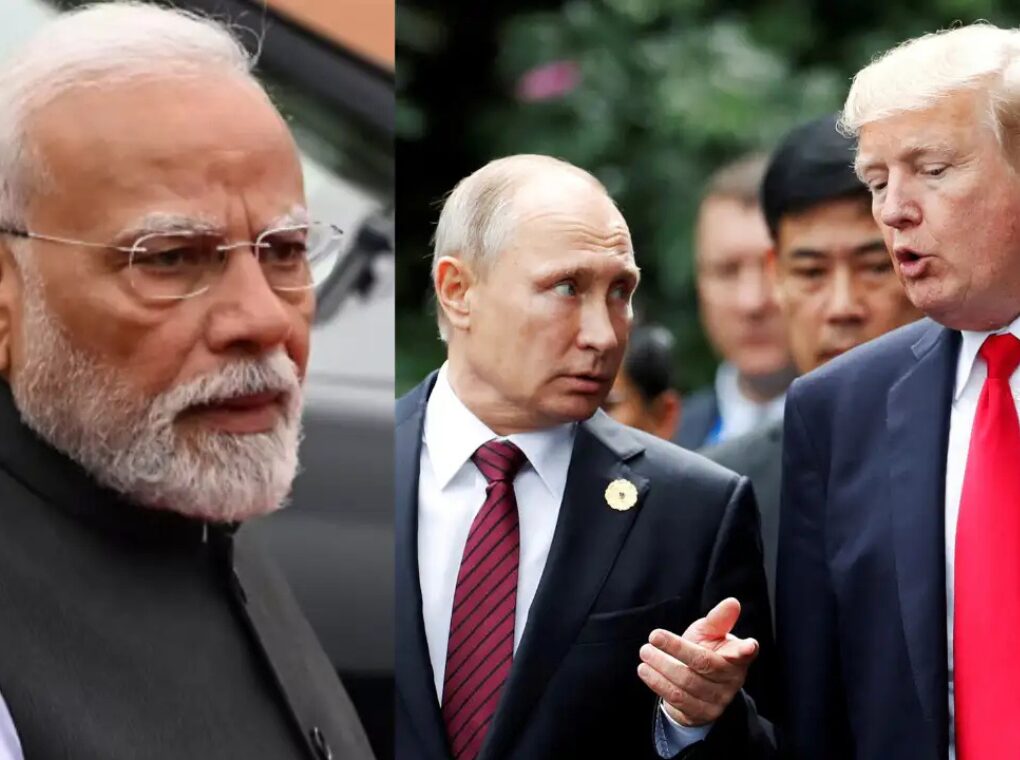India has delivered one of its firmest diplomatic rebuttals in recent memory, pushing back against claims from NATO and the United States regarding its energy ties with Russia.
The controversy was sparked by NATO Secretary-General Mark Rutte, who in a recent interview claimed that Prime Minister Narendra Modi had called President Vladimir Putin in Moscow to discuss US-imposed tariffs on Indian exports.
The remark, widely circulated in international media, suggested that US tariffs were forcing India into backchannel negotiations with Russia. However, New Delhi was swift and categorical in its response.
MEA spokesperson Randhir Jaiswal said: “This statement is factually incorrect and entirely baseless. At no point has Prime Minister Modi spoken with President Putin in the manner suggested.” He further urged NATO leaders to exercise responsibility and accuracy in their statements. Social media reactions quickly lampooned the claim, labeling it “bizarre” and “speculative diplomacy.”
The Core Issue: US Tariffs
At the heart of the matter lies a more serious issue—energy security and trade. Since returning to the White House, President Donald Trump has imposed a steep 50% tariff on certain Indian exports to pressure Delhi into halting purchases of Russian crude.
India, the world’s third-largest oil importer, sources nearly 40% of its oil from Russia. Cutting off this supply could significantly increase fuel prices for its 1.4 billion citizens. The MEA emphasized that India’s energy imports are critical to ensuring predictable and affordable costs for Indian consumers, making energy security non-negotiable.
The Venezuelan and Iranian Trap
Facing pressure to pivot to American oil, India has adopted a subtle yet effective strategy. New Delhi has indicated it will only consider reducing Russian imports if the US lifts sanctions on Venezuelan and Iranian oil.
While this may sound straightforward, the reality is far more complex. Lifting sanctions on Venezuela and Iran would depress global oil prices and undercut Russian discounted crude—an outcome the US cannot politically accept. The result? India appears cooperative but effectively guarantees its continued reliance on Russian oil. As one analyst put it, “India isn’t stopping; it’s just setting traps the US can’t spring.”
Double Standards and Strategic Autonomy
India’s position also highlights perceived global double standards. Hungary, a NATO member, continues to source 80% of its oil from Russia without facing similar penalties. Meanwhile, India, which has maintained a neutral stance on Ukraine, faces punitive tariffs.
In response, India has pursued diversification—supplementing its energy imports from the US, Saudi Arabia, and Iraq—while maintaining Russian oil flows at around 1.5 million barrels per day. This approach aligns with New Delhi’s broader multi-alignment strategy: cooperating with the West on regional security while safeguarding strategic autonomy.
Geopolitical Implications
Rutte’s statement, though potentially minor in isolation, underscores the larger tensions surrounding India’s foreign policy. As US tariffs continue to bite, India is expected to raise the issue in high-level forums such as the upcoming G20 summit. Yet the message from New Delhi remains firm: sovereignty first, alliances second.
India’s deployment of the ‘Venezuelan and Iranian Trap’ illustrates its deft maneuvering in global energy politics. By keeping options open and placing the burden of an impossible choice on Washington, Delhi is asserting its strategic autonomy while ensuring energy security. As the MEA stated, India will continue “taking all necessary measures to safeguard its national interests,” signaling a steadfast commitment to realpolitik in an increasingly weaponized energy landscape.
